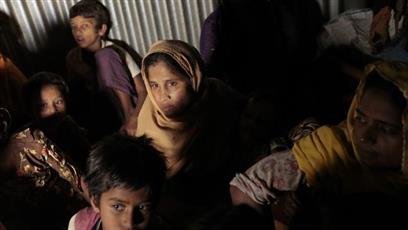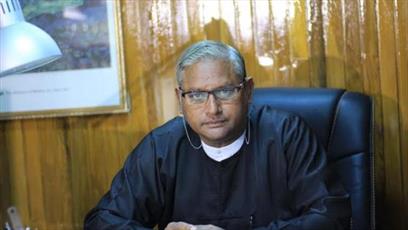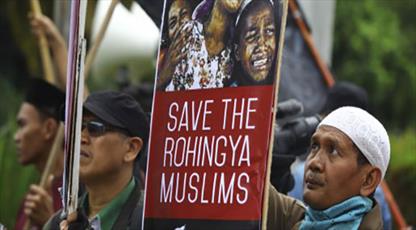Hawzah News Agency (Dhaka, Bangladesh) - The leading human rights group made the plea on Wednesday, February ۹, ۲۰۱۷, saying that the transfer of the refugees from the persecuted Muslim Rohingya community to a secluded and uninhabited coastal island in the Bay of Bengal would deprive them of their basic rights, including freedom of movement, livelihood, food, and education.
Bangladeshi officials have for some time been intending to relocate tens of thousands of Rohingya refugees to the Thengar Char island in the Bay of Bengal in eastern Bangladesh.
“The Bangladeshi government is making the ridiculous claim that relocating Rohingya refugees to an island with absolutely no facilities that is deluged at high tide and submerged during the monsoon season will improve their living conditions,” said Brad Adams, the Asia director at the New York-based rights body.
“This proposal is both cruel and unworkable and should be abandoned,” he said.
The relocation program was first introduced in 2015 but was shelved after fierce criticisms. The government revived the plan early this month following the new influx of Rohingya refugees to Bangladesh.
The Rohingya Muslims are already being cracked down on in neighboring Myanmar.
Two UN agencies recently reported that the Myanmarese army likely killed over 1,000 members of the ethnic community over the past months. The officials said the death toll had been far greater than previously reported.
Myanmar denies citizenship to more than 1.1 million Rohingya Muslims living in the country, with Buddhist officials still insisting that members of the community all illegally crossed the border from Bangladesh over the past decades.





Your Comment